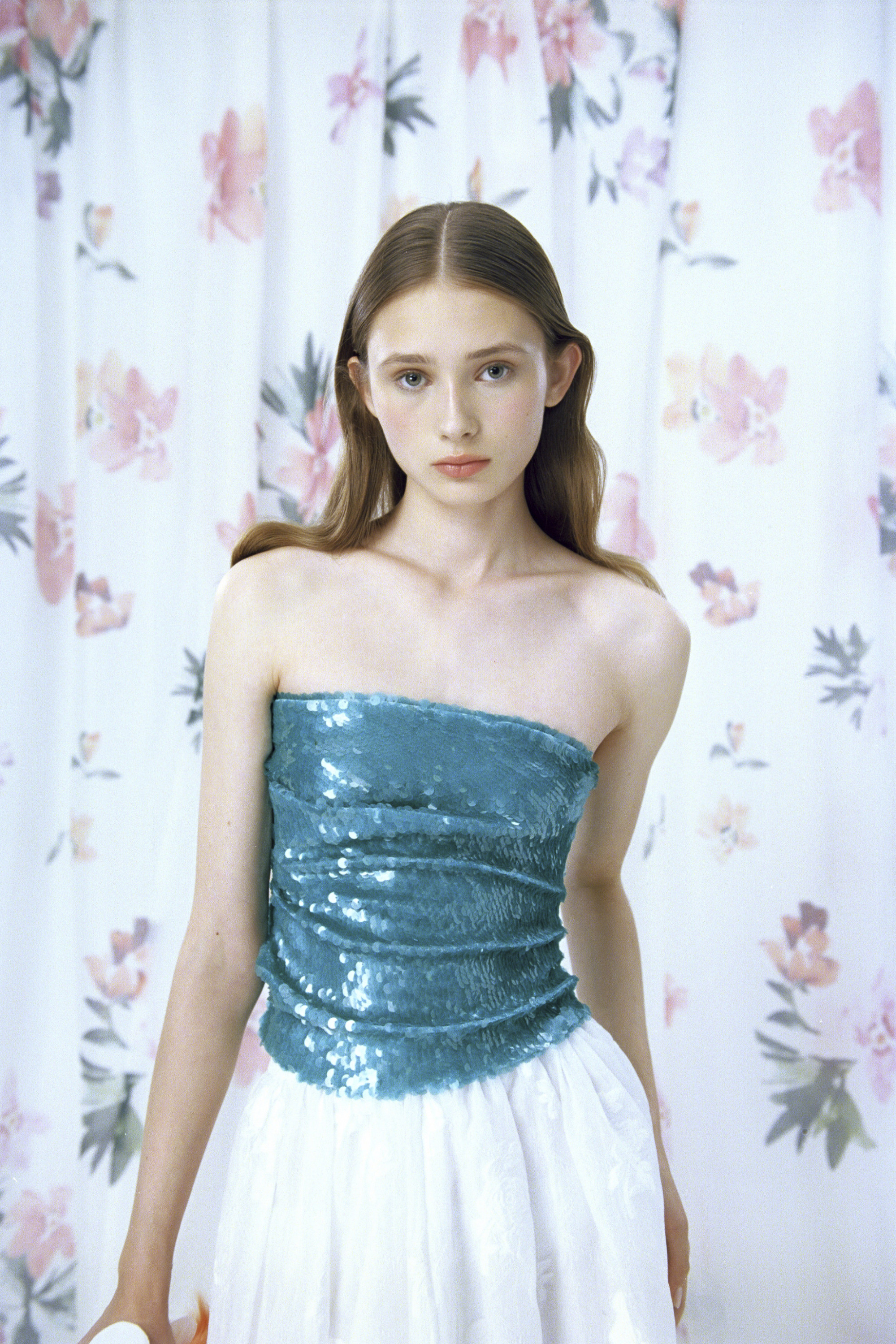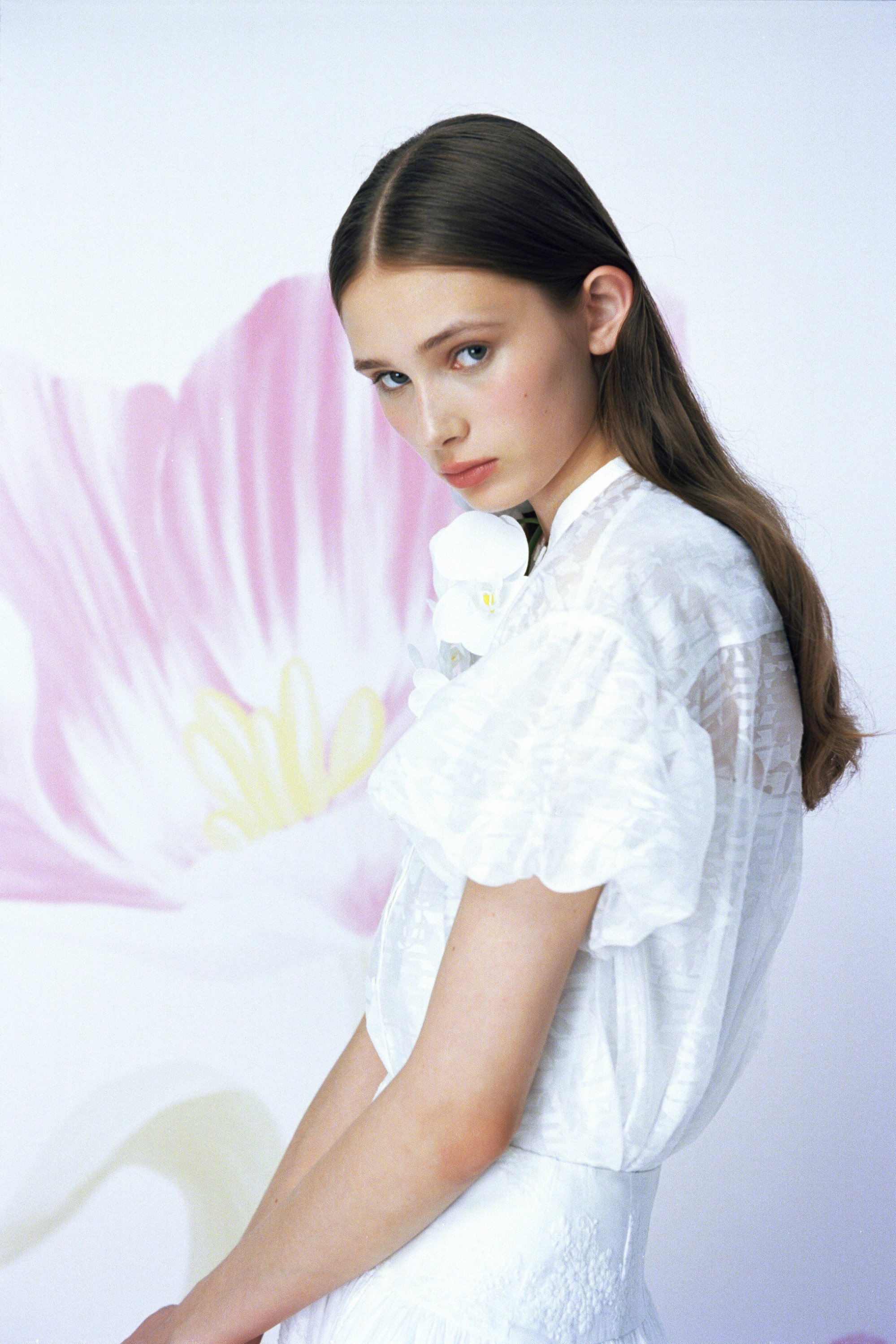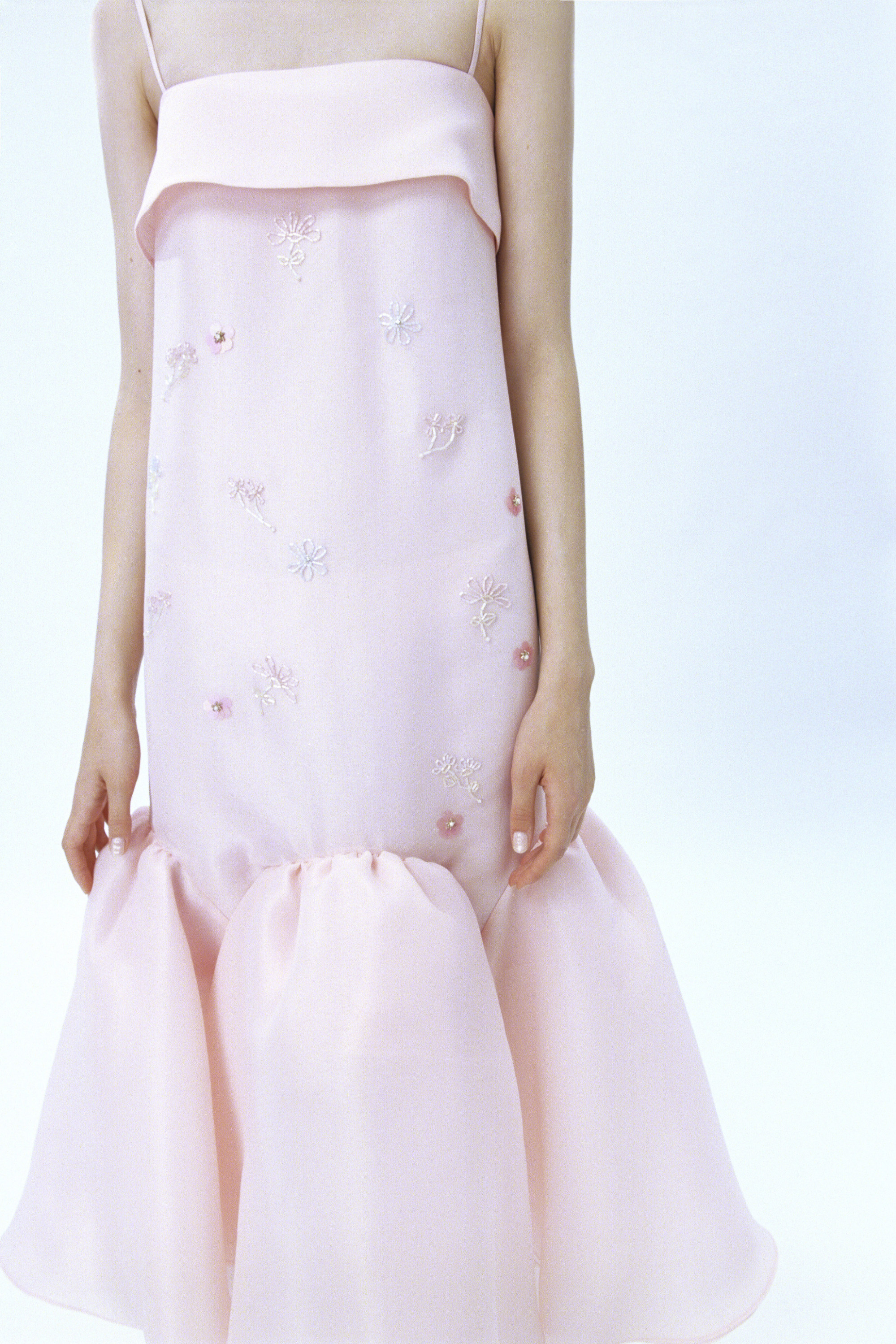Chinese fashion designer Ming Ma lives within walking distance of his crisp-white but homely Shanghai studio. His parents relocated from Wuhan, the city in Hubei province in which he was born, to the area to be closer to him. Sometimes he brings his small fluffy pet Pomeranian, Muaji – named after the Japanese rice cake, mochi – to work.
Outside the window, Shanghai’s looming Exhibition Centre – one of the city’s landmark buildings, constructed in the mid-1950s – looks within touching distance.
“My world is this one-kilometre square,” he laughs.
Books surround us, with titles such as Utopia Forever: Visions of Architecture and Urbanism; Sacai A to Z; Kenzo Takada; Edward Hopper. “I have loads at home too. I love collecting books,” he says.

Ma graduated from London’s Central Saint Martins art school with a bachelor’s and a master’s degree before taking a different route to many of his contemporaries and working at a fashion company in Beijing for two years, where he familiarised himself with production, cash flow and other tenets of a successful fashion brand.
He established his eponymous label in 2018 and the same year showed its first collection at Shanghai Fashion Week via the event’s platform for emerging designers, Labelhood.
Kibbe body types went TikTok viral. They stand for everything Gen Z does not
Kibbe body types went TikTok viral. They stand for everything Gen Z does not
“We were lucky, we started at a good time,” Ma says, referring to the rise of the “second wave” of Chinese designers who returned to the country after studying overseas.
This timing no doubt helped Ma, but the brand’s popularity in China is down to more than mere luck. Creativity, intuition and effortless technical craft are just some of Ma’s skills.
Selling through a newly opened e-commerce store on China’s Tmall marketplace this season, he’s even confident enough not to feel “forced into” holding a runway show. He skipped the most recent edition of Shanghai Fashion Week, instead showing his spring/summer 2024 collection at Tube, a showroom near the city’s retail mecca Xintiandi. (Tmall is operated by Alibaba, owner of the South China Morning Post.)

Inspired by Hungarian composer Franz Liszt’s Years of Pilgrimage, a set of three suites for piano, the new collection is pared back and tells the story of a road trip, and in many ways a journey of self-discovery.
The colour palette is restrained, with plenty of black and white, sky blue, baby pink, goose yellows, and small floral patterns. Knit has been introduced to the brand’s lexicon alongside jacquard fabrics, lace from Japan and denim with elaborate embroidery.
In his own words, Ma wants to focus more on getting the product right for the domestic market, making the season’s theme of self-actualisation all the more poignant.
I’ve learned to design more for the woman who wants to wear my clothes. They are for everyone.
Velinda Zhang has been stocking Ma’s designs for three years. A buyer for her self-titled store, Velinda, Beijing-based Zhang says she is drawn by the brand’s universality and how it allows customers of all different ages and identities to enjoy its ultra-feminine DNA.
She attributes its popularity to a unique brand of charm and recognition.
“The pampered princess-like mood can be felt at a glance from the clothes,” she explains, adding that “a romantic and delicate feeling” makes the brand suit Asian women’s tastes.

Zhang also points out that Ma’s pieces can be worn confidently, regardless of body type. This accessibility has been honed over time.
“When I started, I was more into this archetypical body shape,” Ma says. “But over the seasons, I’ve learned to design more for the woman who wants to wear my clothes. They are for everyone.”
Clean, deceptively simple-looking dresses are his signature, and a classic white dress has become a bestseller on Tmall.
“Customers are buying them for weddings – mostly as the morning dress,” he says. “So we keep developing the dress.”

Faye Zhao, buyer at NoundNound, a store in Nanjing in China’s Jiangsu province, thinks that what makes Ma’s designs stand out are the “unique silhouettes and custom-made textured fabrics”.
“Every season, the brand extends the season’s recognisable products through different sources of inspiration that surprise,” she says.
Ma says he absorbs historical references from the arts, taking inspiration from mostly women artists from various fields that are then distilled into his experimentations in form.
Currently, he is referencing a French book on sculptor Odette Lepeltier he found in Paris; he’s also reading up on the artistic family The Rossettis and the sculptor Bernini.
As a brand, you need to be delivering a message. Ours is about art and culture
For the Ming Ma woman, the creations of expressionist painter Helen Frankenthaler translate as striking colour blocking; the treasures found by the botanical explorer Marianne North inspire fascinating shapes and textures.
Prints, too, emanate from the passages of books or memories. This season, one is based on a typical English garden, inspired by London’s Holland Park. (Ma still thinks fondly of his time in London, and favourite places such as the park.)
Books on flowers line the studio’s shelves, and the lavish publication Dior in Bloom is spotted in the corner; his personal favourites are tulips and dahlias.
This love of nature has also seen the designer strive to be healthier post-Covid. His day starts around 6.30am with a session in the gym and he goes swimming later in the day; the exercise helps with his mental health, which he felt suffered during the pandemic.
“I’m trying to be healthier but predominantly my day is spent preoccupied with work,” he says, admitting that he rarely has time off.
The story of Tank Air’s sultry separates, worn by Bella Hadid, Olivia Rodrigo
The story of Tank Air’s sultry separates, worn by Bella Hadid, Olivia Rodrigo
A business trip is on the immediate horizon: the team will launch a pop-up store in NoundNound and a “meet the designer” event.
These kinds of activations are vital for Ma to connect with his shoppers. It’s all about maintaining a personal connection, explains his brand manager, Kent Yeh – a refreshing approach considering the digital-first nature of China’s fashion scene.
“As a brand, you need to be delivering a message. Ours is about art and culture,” Ma says.
Ming Ma is now a team of 13, with many starting as interns. They are “bonded”, Ma says of his colleagues; like his family, who followed the designer to Shanghai.
“It’s really amazing to have this support. I’m very lucky.”
Then again, it’s more than just luck that’s helped Ma become one to know in China’s competitive, unforgiving fashion landscape in five short years.
Stay connected with us on social media platform for instant update click here to join our Twitter, & Facebook
We are now on Telegram. Click here to join our channel (@TechiUpdate) and stay updated with the latest Technology headlines.
For all the latest Fashion News Click Here
